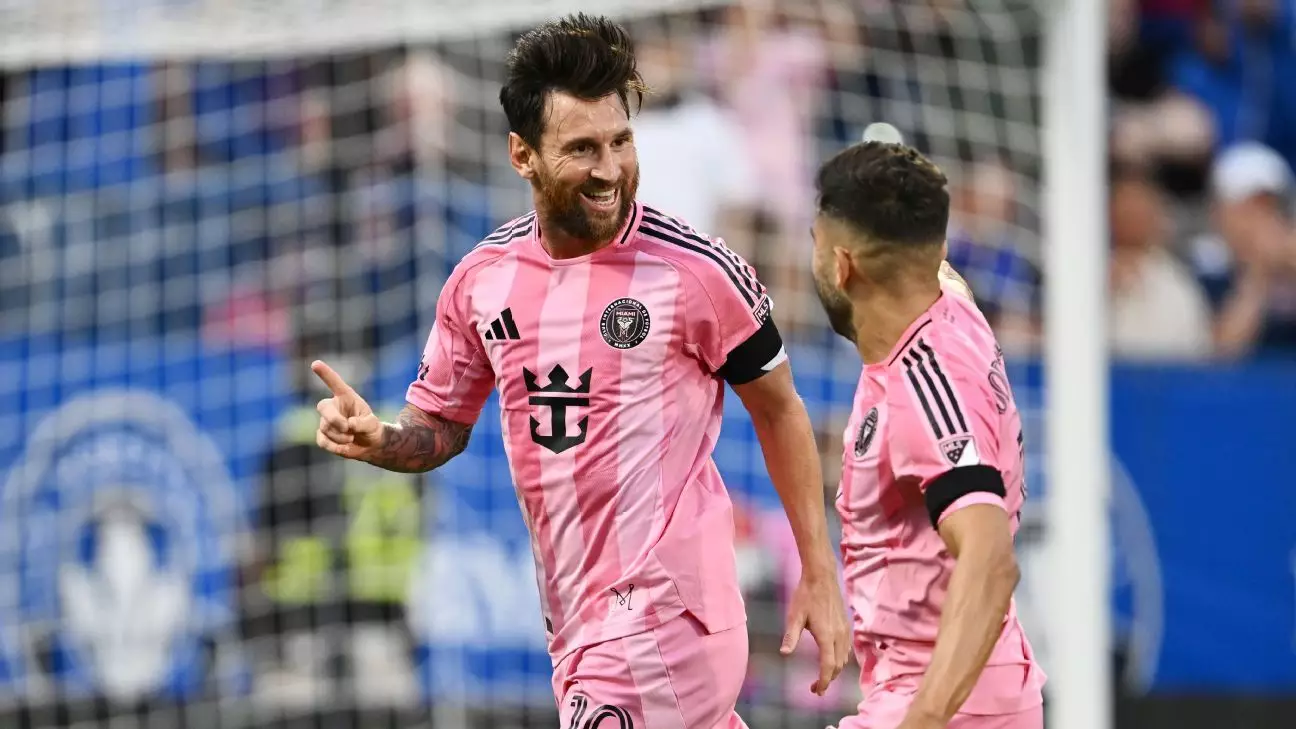The recent suspension of Lionel Messi and Jordi Alba highlights a critical tension within professional soccer—balancing league interests, player welfare, and the integrity of competitions. Traditionally, all-star games serve as a showcase of talent and a celebration of the sport’s best, but when they clash with the physical well-being of players and congested schedules, the concept warrants reassessment. The MLS’s decision to sanction Messi and Alba underscores an unwavering enforcement of rules, yet it also reveals a lack of flexibility in prioritizing athlete health and genuine competition quality.
This rigid stance, driven by league policies, dismisses the nuance of player’s physical states and the strategic importance of their participation. Messi, a player lauded globally, was reportedly fatigued, and Alba had sustained an injury—all legitimate reasons for skipping the All-Star Game. However, the league’s stance appears to overlook these individual circumstances, emphasizing compliance over compassion. In professional sports, especially at the league level, rules should serve to protect player health, not punish it on technicalities. League authorities might consider restructuring penalties or implementing more discretionary assessment processes that respect players’ physical and mental conditions.
Questioning the Timing and Value of the All-Star Gala
The core issue extends beyond penalties and touches on the scheduling and relevance of the All-Star Game itself. Critics have long argued that positioning the mid-season exhibition between taxing tournament cycles puts unnecessary strain on athletes. Mascherano’s comments reflect a broader frustration shared by coaches worldwide—player fatigue is an often-overlooked factor when planners set these events. While the All-Star game aims to boost league visibility and fan engagement, its placement on the calendar often conflicts with players’ wellbeing and team commitments.
This situation raises the question: Should the MLS rethink its approach to such events? Instead of forcing star players into situations that risk injury or burnout, the league could opt for alternative formats or hold the match during a more appropriate window, perhaps during a dedicated break. Moreover, integrating the interests of clubs and players into the scheduling process would demonstrate a more holistic, player-centric philosophy, ultimately strengthening the league’s reputation and the health of its athletes.
Balancing Competitive Integrity and Player Rights
The league’s enforcement of sanctions for non-participation reveals a conservative approach that prioritizes the league’s authority over player autonomy. While rules are necessary to maintain order, they should not overshadow the foundational principles of fair play, especially regarding player welfare. Professional athletes are more than commodities—they are individuals whose health and performance are intertwined with their careers and personal well-being.
Mascherano’s comments surface an important critique: that the current structure fails to acknowledge the physical toll on players, particularly those involved in multiple competitions. His remarks advocate for a paradigm shift—where player health and rest are regarded as integral to league success, not obstacles to be managed through disciplinary actions. Future policies could incorporate mandatory rest periods, flexible participation rules, and open dialogues with players and coaches to craft a schedule that respects their limits.
In an evolving sports landscape where athlete rights are gaining prominence, MLS must lead the way. The narrative should shift from one of enforcement to one of empowerment, where players are supported in balancing their competitive ambitions with their health. On a broader level, this incident underscores the need for the league to evolve its governance, ensuring that competitiveness does not come at the expense of the individuals who bring the sport to life. Only then can MLS truly claim a commitment to excellence, fairness, and sustainability in American soccer.


Leave a Reply